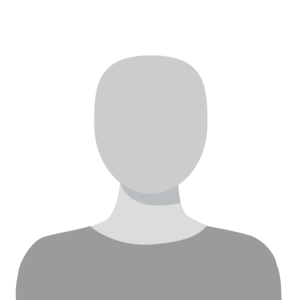COVID-19 survey in the German National Cohort (NAKO)
As part of the German National Cohort, a COVID-19 survey of all 205,000 participants has been launched with the aim of gaining insights into the distribution, course and effects of COVID-19 in Germany. The survey includes questions on the infection status, on changes in behaviour due to the pandemic and on social contacts during the pandemic. In addition, the psychosocial effects of the pandemic situation, including possible changes in employment status, lifestyle and social life, will be surveyed.
First results show, that during the first wave of the pandemic and the countermeasures taken, there has been a significant increase in the population's symptoms of depression, anxiety and stress.
The German National Cohort and in this context the COVID-19 survey is funded by the Federal Ministry of Education and Research (Bundesministerium für Bildung und Forschung, BMBF), the participating federal states and the Helmholtz Association. The NAKO Study Center Augsburg is one of the largest of the 18 NAKO study centers in Germany and is operated by Helmholtz Zentrum München in cooperation with the University Hospital Augsburg.
Further information on the first results and the COVID-19 survey in the NAKO health study.
Contact
SARS-CoV-2 antibody testing in Fr1da plus study for early detection of type 1 diabetes
Screening children for early stages of type 1 diabetes in Bavaria, "Fr1da-plus" will now integrate SARS-CoV-2 antibody testing directly into their field study. This could help to obtain reliable data on infection rates. In addition to that, the tests could provide insights into the spread pattern and detect potential differences in region, age and gender.
Led by Helmholtz Zentrum München and together with an existing network of more than 600 physicians, researchers tested 30.000 children so far from the Fr1da-plus study for antibodies against SARS-CoV-2, too (as of end of March 2021, for current figures see dashboard). The research project is carried out in cooperation with the San Raffaele Hospital in Milan, where an antibody test was developed.
First results indicate a six-fold higher SARS-CoV-2 exposure rate among children in Bavaria, Germany, than reported cases. This highlights the value of population-based antibody screenings for pandemic monitoring. The study also describes a novel approach to measuring antibodies against SARS-CoV-2 with high accuracy.
While the Fr1da study continued, it concludes that during the second Corona wave (testing period October 2020 to February 2021), three to four times more children in Bavaria, Germany were infected with the Corona virus than reported via PCR tests. In addition, the researchers found that about eight times more children had antibodies against SARS-CoV-2 at the end of the second wave in comparison to the end of the first wave. The prevalence of SARS-CoV-2 infections in preschool and school children is an important benchmark for deciding whether to open kindergartens and schools. Read more
Original publications
Hippich et al., 2020: Public health antibody screening indicates a six-fold higher SARS-CoV-2 exposure rate than reported cases in children. Med, DOI: 10.1016/j.medj.2020.10.003.
Hippich et al., 2021: A Public Health Antibody Screening Indicates a Marked Increase of SARS-CoV-2 Exposure Rate in Children during the Second Wave. Med, DOI: 10.1016/j.medj.2021.03.019
Contact
KoCo19 - Prospective COVID-19 Munich Cohort
A large-scale random sample analysis of around 3,000 randomly selected households will be used to investigate the spread of the Corona pandemic and the effectiveness of countermeasures in the Munich area. The results of KoCo19 are expected to contribute to evidence-based political decision-making during the pandemic.
A consortium of Munich research institutions, including Helmholtz Zentrum München, is conducting the study under the direction of the Tropical Institute of the LMU Klinikum. The Bavarian State Government is supporting the initiative.
The interim results show, among other things, that the positivity rate among the participants in the period between the start of June 2020 and early November increased from 1.74% to 3.27%. The number of undetected infections has almost halved between the first wave and autumn. The reasons for this could be due to lower case numbers and thus better traceability in the summer, combined with an increased awareness and improved testing strategy.
Further information and results (in German):
LMU Klinikum und Helmholtz Zentrum München: Die Dynamik der COV-19-Pandemie im Blick - Zwischenergebnisse zur zweiten Runde der KoCo-19-Antikörperstudie - Pressemitteilung vom 23.12.2020
GEMEINSAM GEGEN COVID: Prospektive COVID-19 Kohorte München (KoCo19)








